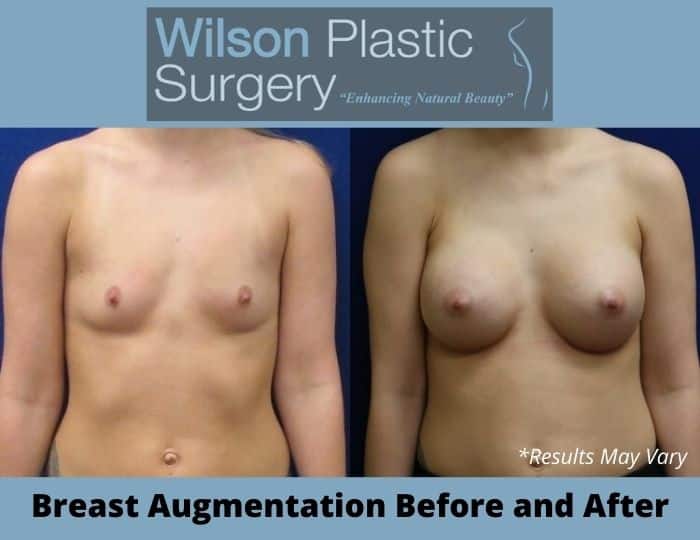November 25, 2020 | 5 minute read
5 Minute Read:
Hundreds of thousands of women choose to augment their breasts with implants every year, with numbers that have remained consistent (or have grown) for decades. There is no questioning that breast augmentation is the most popular plastic surgery procedure in the United States. It is also quite often the first procedure many think of when hearing the term “plastic surgery.”

Even though breast augmentation is common, there are still many misconceptions and questions about what to expect once you have implants. Will I still have breast and nipple sensitivity? Will I be able to breastfeed? Will my implants last forever? If I chose the wrong size implant, what then—am I stuck?
The list of unknowns and questions go on.
Because breast augmentation—like all forms of plastic surgery—is a long-term investment, it is important to understand what you are getting yourself into. Fortunately, when it comes to breast implants, life after augmentation doesn’t require many changes.
Will I Lose Breast or Nipple Sensitivity?
Many women are concerned about losing nipple sensitivity after having implants. This is a legitimate fear—after all, nipple sensitivity is closely related to sexual health and confidence, and breast augmentation is often chosen to improve self-confidence.
Breast augmentation relies on implants to enhance the size, shape, or projection of the breasts.
Implants can sit above or below the pectoral muscle, and incisions can be made along the breast crease, around the areola, or in the armpit.
To maintain sensitivity, the implant must be inserted into the breast pocket without severing or damaging too many of the nerves below the nipple—since the decrease in sensitivity occurs when the nerves are severed.
Fortunately, most breast implants are inserted so they don’t interfere with those nerves—particularly when placed through the breast crease and beneath the muscle. Placing the implant above the muscle or inserting it through an incision made around the areola is more likely to affect or limit sensitivity.
More often than not, breast augmentation patients do not experience a significant change in nipple sensitivity.
Changes in sensitivity are much more common with breast enhancement procedures like breast reduction or breast lift surgery. However, even with those surgeries, it’s not a guaranteed loss. Breast reduction or lift surgery is riskier when it comes to sensitivity because it eliminates or augments tissue (skin, fat, and muscles) around those all-important nerves. Occasionally, these procedures even remove the nipple-areola complex, which makes maintaining nipple sensitivity very challenging.
Changes in nipple sensation are typical immediately following breast surgery, regardless of augmentation, reduction, or lift. However, more often than not, this sensitivity returns to normal (or at least close to normal) within a few months of the operation.
Are Breast Implants Permanent?
Breast implants are long-lasting, but they may not be permanent. While older reports consider the lifespan of an implant to be somewhere between 10 and 15 years, with newer generation implants, this is not the case.
Some women experience complications within the first two or three years, and others report healthy implants their entire life. While there is no way to know exactly how long your implants will last, there is a reasonable chance you will want to replace or remove them at some point.
If you experience a problem with one or both of your implants, a breast revision procedure will be able to restore the form and function of your implants.

What Are the Chances My Implants May Rupture?
Both saline and silicone implants have sturdy silicone shells that protect the inner contents, allowing them to withstand a significant amount of pressure. Unfortunately, accidents do happen.
The most common cause of implant rupture is capsular contracture. All patients develop scar tissue, known as a capsule, around the implant. If the scar tissue becomes excessive, it can make the breast hard and eventually rupture the implant. This, however, usually takes several years to develop.
But before you worry too much, capsular contracture with or without implant rupture is not nearly as dangerous or complicated to fix as you may expect. This can easily be accomplished with breast revision.
Will I Be Able to Breastfeed With Breast Implants?
Breastfeeding after augmentation is a common question among women who choose the procedure before having children. There are various incision options available, and the choice of the incision may affect breastfeeding. Breastfeeding relies on undamaged milk ducts. When an implant is placed through the inframammary incision (under the breast) or the transaxillary incision (in the armpit), there is typically no interference with the milk ducts. This allows for the ability to breastfeed.
When an implant is placed through the periareolar incision (around the nipple), there is a chance that the connection between the milk ducts and the nipples will be damaged. However, even if no damage occurs, there is still a chance that breastfeeding may be difficult, as some women cannot produce milk regardless of whether they have implants.
Are Breast Implants Safe for Long-Term Use?
Over the years, millions of women have enhanced their breasts with implants. Implants are FDA approved for safe, long-term use.
As with any operation, post-surgical complications include infection, hematoma (where blood collects around the implant), and capsular contracture (where scar tissue forms and contracts around the implant). While complications are possible, they are not common, and breast implants do not affect breast cancer risk or breast cancer screening.
Interested in Learning More?
For additional questions about life after breast augmentation, or if you would like to set up a consultation in Huntsville, Alabama, contact Dr. Wilson by calling (256) 551-2002 or filling out our online contact form.

